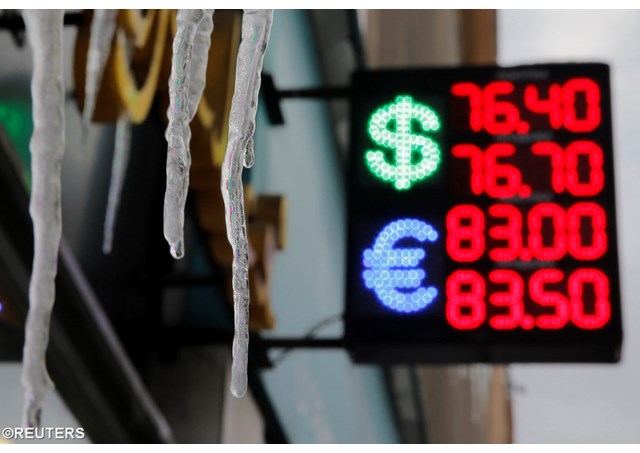
Russia leaders warn of repeat 1998 economic crash

(Vatican Radio) Russia's leaders have warned the government will need to make more cutbacks if the nation is to avoid a repeat of the 1998 financial crash, the country's biggest post-Soviet economic trauma.The warning comes amid concerns about falling energy prices and Western sanctions against Russia over its perceived role in Ukraine's conflict, which killed more than 9,000 people.
Listen to the report by Stefan Bos:
![]()
Moscow says Russia's economy, which is heavily reliant on its massive oil and natural gas industry, is hammered by the plunge in global energy prices. State revenues are running dry and the cost of living is soaring for Russians as the nation's currency drops.
President Vladimir Puitin has acknowledged that Western sanctions against Russia over its role in Ukraine have added to Russia's economic woes.
The West introduced the measures after Russia annexed the Crimean Peninsula and began backing separatists in eastern Ukraine, though Moscow has denied it supports the rebels with weapons and troops.
Faced with the prospect of the economy languishing in recession in an election year, the government is now trying to manage expectations.
BUDGET CUT
Russian Finance minister Anton Siluanov warned that Russia's budget must be cut by at least 10 percent to avoid a repeat of the economic disaster of the late 1990s. "If the state's finances aren't adjusted to the new conditions we are finding ourselves in, we can expect big deficits, a big inflation on our hands, and the devaluation of our currency as was the case in 1998, 1998, if we don't take the right decisions regarding our financial needs based on our financial capacity," he warned.
"We shouldn't make the same mistake [as in the late 1990s]. We most thoughfully
cut and calculate the budget to meet the new conditions," the minister added.
In the interview with Bloomberg Television he referred to August 17, 1998, seen by
Russians as Black Tuesday.
It was the day when the nation defaulted on its debt, the currency started to fall fold, inflation was out of control, and many were unemployment. And people were seen fighting in bank lines to get to their money as banks collapsed.
FUTURE UNCERTAIN
Moscow has suggested that the country may be able to finance its needs this year with privatization and using reserves.
Officials say however that more should be done as the budget is based on oil process of at least 50 dollars a barrel, whole they are currently hovering around 30 dollars or less.
Russia's finance minister has not ruled out cuts in the military and even welfare spending in the future.
Yet those moves that are expected to add to social tensions.
| All the contents on this site are copyrighted ©. |


